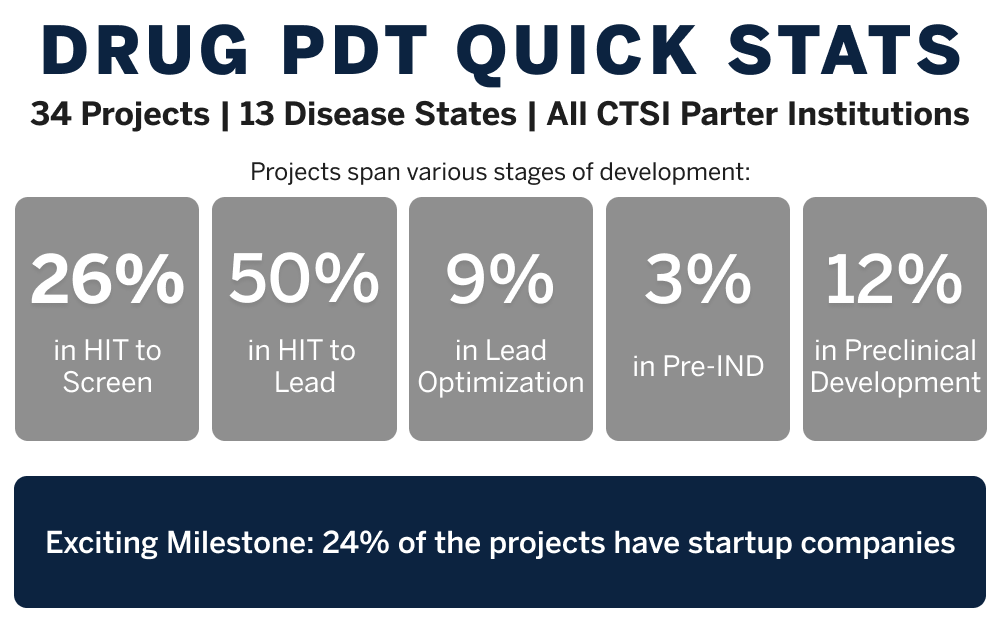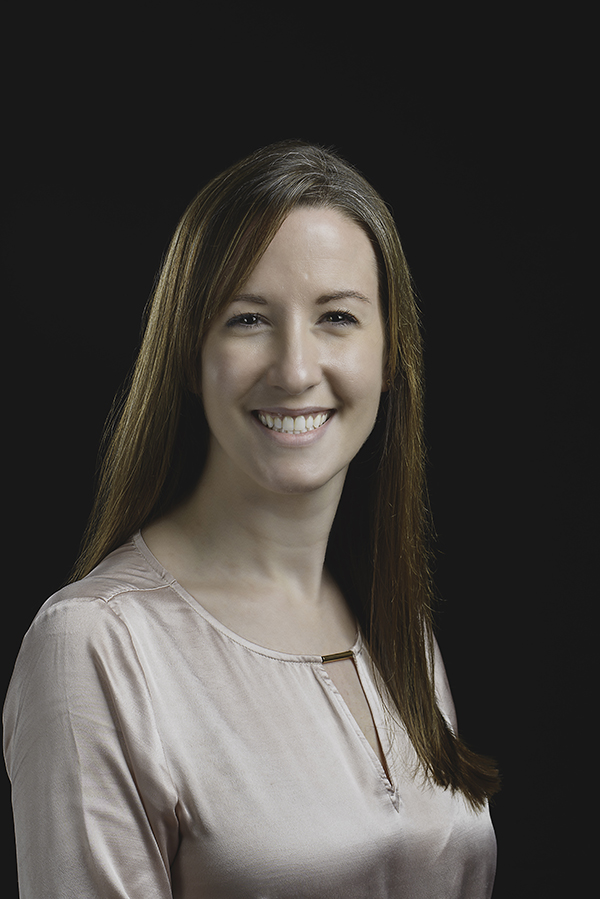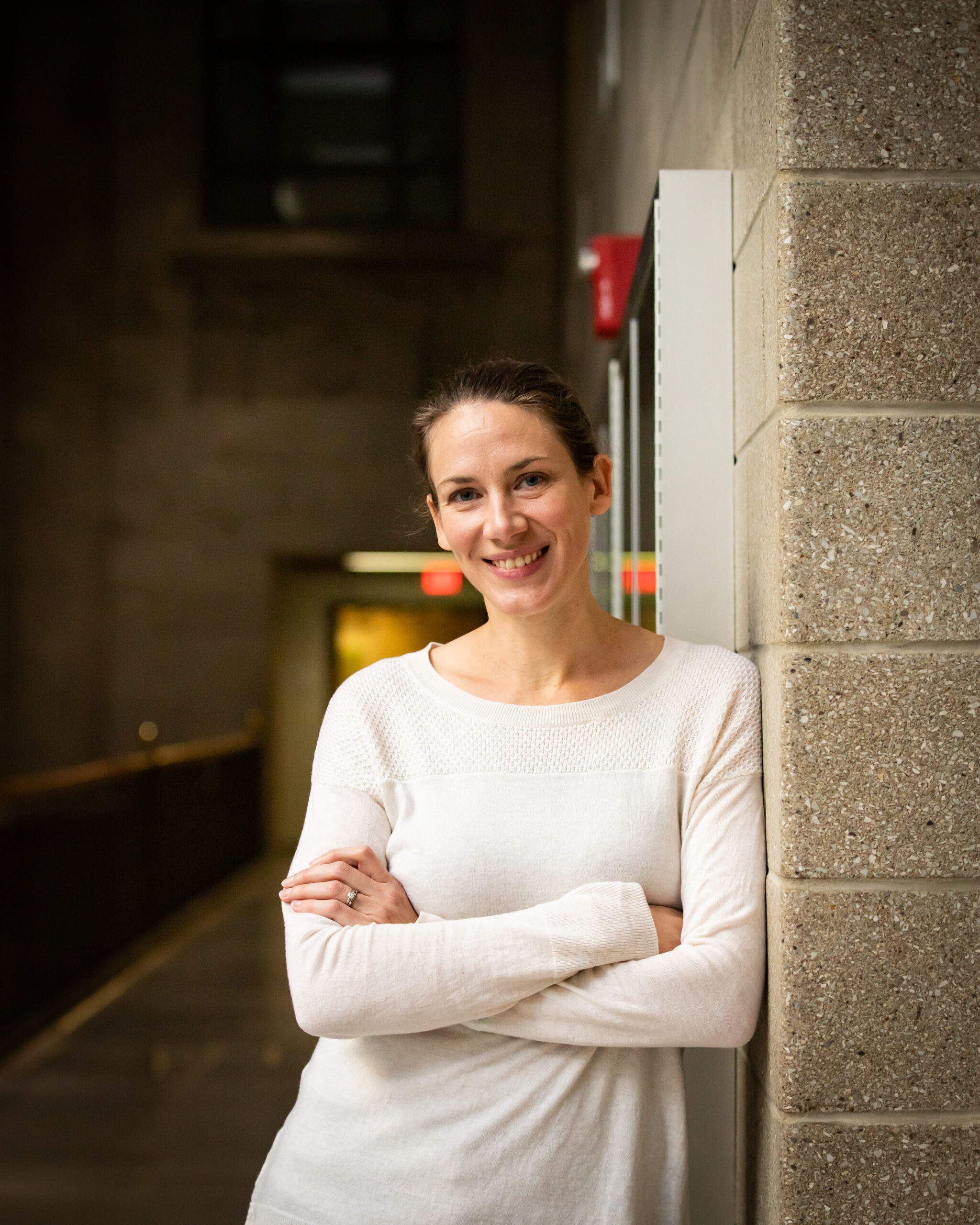About the Drug Development to Commercialization PDT:
The Drug Development to Commercialization Project Development Team (PDT) partners with academic and clinical investigators as they work to bring novel therapeutics or diagnostics through the translational spectrum. In addition to project-specific mentorship, the program offers the opportunity for guidance on navigating the product development process and potential seed funding to help researchers make their ideas a reality. The panel, chaired by Andrew Dahlem, PhD, of IU School of Medicine, and Rich Taylor, PhD, of University of Notre Dame, brings a wide range of expertise to researchers with members from IU School of Medicine, University of Notre Dame, Purdue University, Eli Lilly, Indiana Biosciences Research Institute and IU Kelley School of Business.
Formerly, this PDT was known as the “Drug Think Tank.”

Since 2021, the PDT has made a real difference for investigators.
The investigators:

Julia van Kessel

Laura Brown
Julia van Kessel, PhD, is an associate professor of Biology at Indiana University Bloomington and has been part of the faculty there for ten years. She is president of the company Quornix, which she founded with her colleague Laura Brown, PhD.
Laura Brown, PhD, is a teaching professor in the Department of Chemistry at IU Bloomington, which she joined in 2011. She serves as the Vice President of Quornix.
The project
Van Kessel and Brown are collaborating on a project called “Treating Disease Caused by Pathogenic Vibrio Bacteria.” It focuses on a process called “quorum sensing,” in which bacteria change their genetic expression based on the size and makeup of the surrounding bacterial community.
These alterations in genetic expression can lead to the Vibrio bacteria becoming pathogenic, which impacts marine populations and can also lead to illness in humans.
The team is studying the mechanism for quorum sensing as well as the possibility of interrupting this process through application of small molecules that can bind to the master regulator proteins within an aquaculture (or farming) environment. They are specifically looking at shrimp, which lose 40% of their population a year to Vibrio infection in these environments.
What the PDT did for them:
Van Kessel and Brown’s project was initially funded by the Indiana CTSI’s Core Pilot program. They first engaged the Drug Development to Commercialization PDT in 2022 upon the advice of a colleague. Later, they returned in 2024 for an additional consultation.
The PDT offered proximity and easy access:
Van Kessel and Brown had received a lot of advice over the years from colleagues in the field and at other institutions. But the local nature of the PDT was appealing to van Kessel and Brown. It felt “tangible” due to their proximity and their previous work in the Indianapolis area, said van Kessel.
“It felt like our home state,” she said. “It’s people doing science here.”
The PDT gave tailored and transformative advice:
Initially, van Kessel and Brown planned to focus on human health. But the experts on the PDT suggested that they begin with an aquaculture study, which would allow them to bypass the time-consuming regulatory process involved with human studies and build a clear proof of concept.
The PDT also helped guide them on the prioritization of their experiments, said van Kessel.
Shrimp studies are quite expensive, so they found that it was “important to know when something was likely to be successful versus when it wasn’t in order to know when to kill an experiment that won’t be viable,” she said.
The other key takeaway that came from working with the PDT was what van Kessel referred to as “writing the label.” How long would the molecules stay within the shrimp’s system? What is the frequency at which they would need to be dosed to maintain protection from the Vibrio infection? What sort of side effects would come of this treatment? These were all incredibly important considerations for the team as they developed their intervention.
In a happy coincidence, one of the members of the PDT was an expert on shrimp, which was enormously helpful in solidifying the case to start their study with shrimp aquaculture.
It all felt like serendipity, said van Kessel and Brown.
The PDT gave them a roadmap for future direction:
Van Kessel and Brown knew after talking to the PDT just how incredibly important their research could prove to be in real world application, both in marine populations and eventually humans.
Climate change is leading to rising ocean temperatures across the globe, which has led to a rise in Vibrio infections in marine life. These infections are impacting not only coral reefs and ocean inhabitants, but the aquaculture industry for both fish and shellfish. In turn, these increasing infections of our food supply are leading to increased illness in humans from the consumption of contaminated seafood.
Near term, van Kessel and Brown hope to develop a treatment or preventative for shrimp disease that will cut down on the major loss of aquaculture supply each year. Eventually, they would like to work to investigate how this research could be applied in oyster populations, which are a common source of vibriosis in humans. The CDC estimates that 52,000 cases occur annually from the consumption of contaminated food. Most cases of vibriosis will result in mild gastrointestinal illness, but some strains can be severe.
Intrigued? Learn more and request a consultation.
“I highly encourage researchers to interact with the PDT,” said van Kessel. “The more we talked to other experts, the more we learned. Even when our field wasn’t exactly the same field as people on the PDT, they had excellent general advice and knowledge about the medicinal chemistry, experimental design and analysis.”
Brown echoed the sentiments and added that researchers should have some big-picture questions going into their meeting they can pose to the group.
“This is not to say the group won’t have other feedback, but it would be a great way to get perspective from a diverse group of experts,” she said. “My other piece of advice: be open to unexpected advice.”
If you are interested in meeting with the Drug Development to Commercialization Project Development Team, you can start a request for assistance, or reach out to Padma Portonovo, PhD, MBA, Program Manager.
